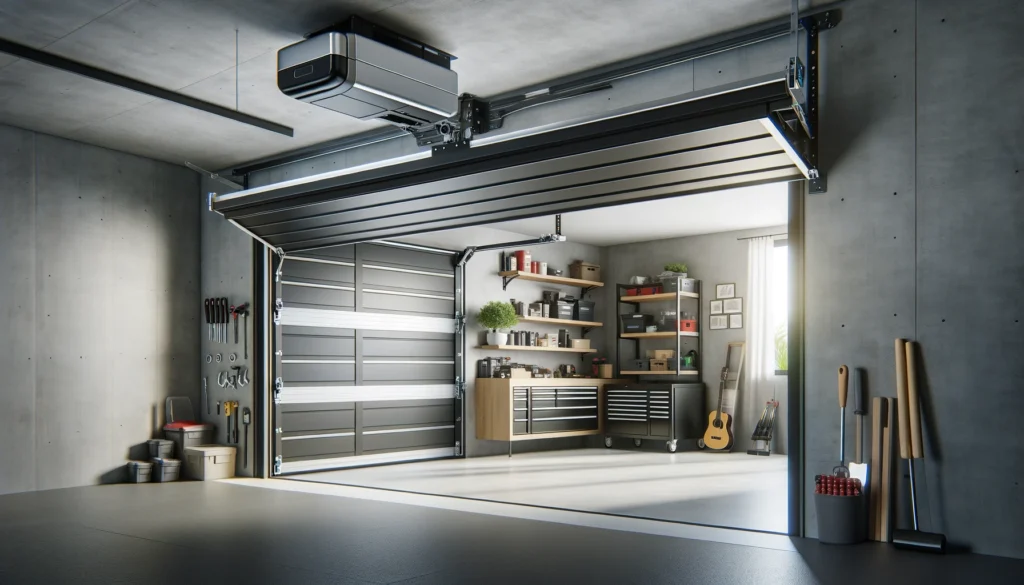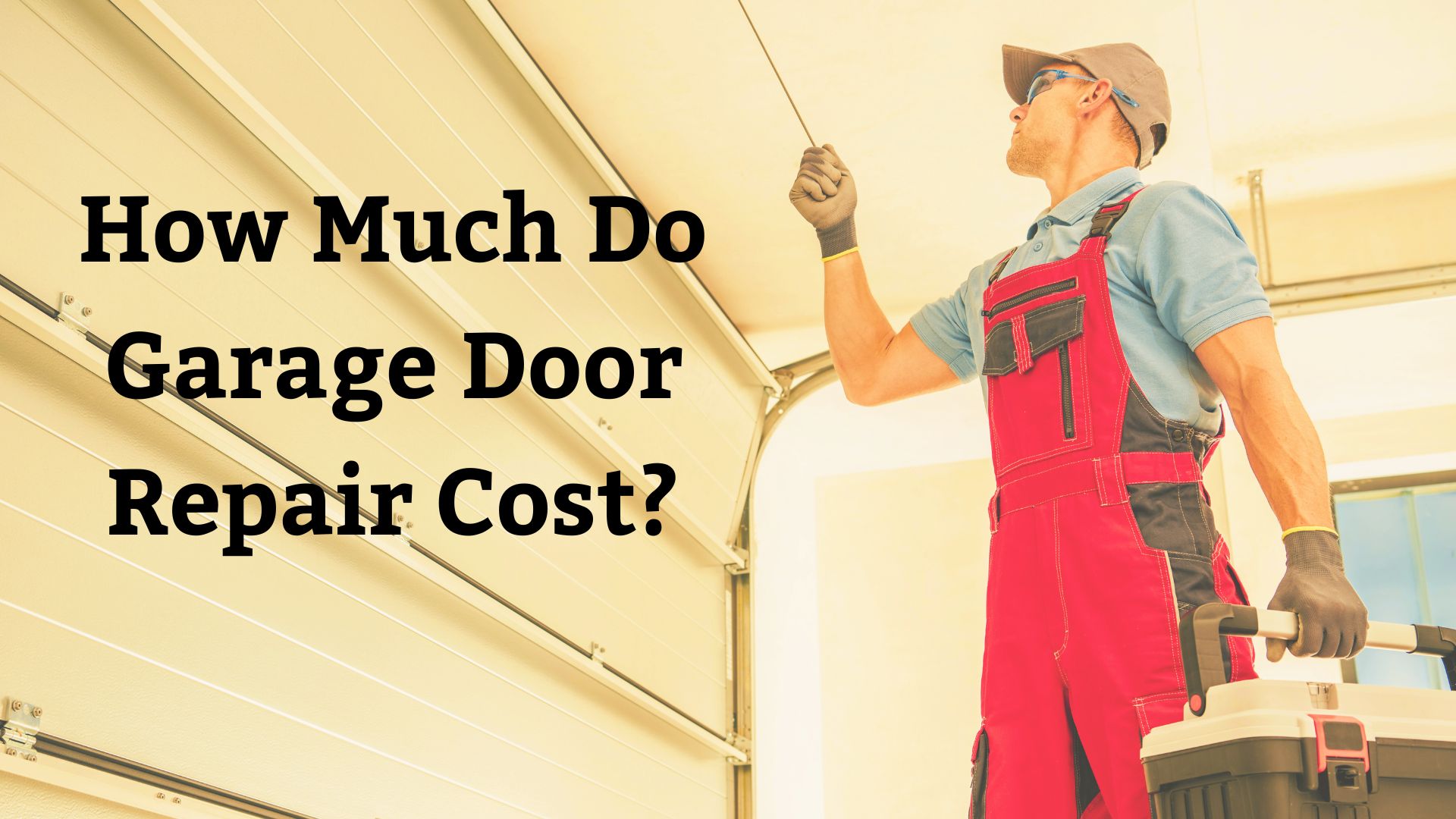Choosing the right garage door opener can greatly enhance the convenience, security, and functionality of your garage. With numerous options available, it’s essential to understand the key factors to consider before making your purchase. This article will guide you through the important aspects to help you select the best garage door opener for your needs.
1. Type of Drive System
Garage door openers come in three main types of drive systems, each with unique benefits:
Chain Drive
Chain drive openers are the most common and typically the most affordable. They use a metal chain to lift and lower the door. Although durable and reliable, they tend to be noisy, making them less suitable for garages adjacent to living spaces. If you have a detached garage, this might be a cost-effective option without the concern of noise.
Belt Drive
Belt drive openers use a rubber belt instead of a chain, resulting in much quieter operation. These are slightly more expensive but are a great choice if noise is a concern, especially if your garage is attached to your home or near bedrooms. Additionally, belt drives often require less maintenance than chain drives, providing a smoother operation over time.
Screw Drive
Screw drive openers use a threaded steel rod to move the door. They require less maintenance and offer a good balance between noise and cost. However, they may be less reliable in extreme temperatures, so consider your local climate before opting for this type. They are also known for their faster opening speeds, making them a good choice for those who prioritize efficiency.
2. Horsepower
The horsepower (HP) of the motor determines how much power the opener has to lift the door. Here’s a quick guide:
- 1/2 HP: Suitable for standard single-car garage doors made of steel or aluminum. These are usually sufficient for most residential applications.
- 3/4 HP: Ideal for heavier double-car garage doors or single doors made of heavier materials like wood. If you have an insulated door, this might be the right choice.
- 1 HP or higher: Best for very heavy doors, oversized doors, or doors with high usage frequency. If you have a commercial or industrial garage, consider this option for reliable performance.
Choosing the right horsepower ensures that your garage door opener operates efficiently and reduces the strain on the motor, prolonging its lifespan.
3. Safety and Security Features
Modern garage door openers come with various safety and security features to protect your home and family:
- Rolling Code Technology: Changes the access code each time the remote is used, preventing code theft. This feature is essential for enhancing security and preventing unauthorized access.
- Automatic Reversal System: Stops and reverses the door if it encounters an obstacle while closing. This safety feature can prevent accidents and injuries, making it crucial for homes with children and pets.
- Manual Release Cord: Allows you to manually open the door in case of a power outage. Make sure the release cord is easily accessible and not too high off the ground.
- Battery Backup: Ensures the opener works during power outages. This feature can be a lifesaver during emergencies and is highly recommended for areas prone to frequent power outages.
4. Smart Features and Connectivity
Many new garage door openers come with smart features, allowing you to control and monitor your garage door from your smartphone or other devices. Features to look for include:
- Wi-Fi Connectivity: Enables remote operation via smartphone apps. This feature allows you to open or close your garage door from anywhere, providing convenience and peace of mind.
- Integration with Smart Home Systems: Compatibility with systems like Amazon Alexa, Google Assistant, or Apple HomeKit. This integration allows you to include your garage door in your smart home routines, enhancing overall home automation.
- Notifications and Alerts: Receive alerts when the door is opened or closed, enhancing security. You can also set up alerts for unusual activity, such as the door being left open for an extended period.
Smart features not only add convenience but also enhance the security of your home by allowing you to monitor and control your garage door remotely.
5. Noise Level
If your garage is attached to your home or near living areas, the noise level of the garage door opener is a crucial consideration. Belt drive openers are generally the quietest, followed by screw drives, with chain drives being the loudest.
Consider the layout of your home and the proximity of your garage to living spaces when choosing an opener. A quieter opener can significantly reduce disturbances, especially during early morning or late-night usage.
6. Installation and Maintenance
Decide whether you want to install the opener yourself or hire a professional. Some openers are easier to install and come with comprehensive instructions, while others might require professional installation.
DIY Installation: Many modern garage door openers come with detailed instructions and are designed for easy installation. However, make sure you have the necessary tools and skills before attempting to install it yourself.
Professional Installation: Hiring a professional ensures that the opener is installed correctly and safely. This option might be more expensive but can save you time and potential headaches.
Also, consider the maintenance needs of the opener:
- Belt Drives: Generally require less maintenance than chain or screw drives.
- Chain Drives: Might need regular lubrication and tension adjustments.
- Screw Drives: Require periodic lubrication to ensure smooth operation.
Proper maintenance can extend the life of your garage door opener and ensure it operates efficiently.
7. Price and Warranty
Garage door openers vary widely in price based on features, horsepower, and brand. While it’s tempting to choose the cheapest option, consider the long-term benefits of investing in a higher-quality opener with a good warranty.
Price: Determine your budget and compare options within that range. Remember that higher-priced models often come with advanced features and better build quality.
Warranty: Look for openers with comprehensive warranties. Warranties can range from a few years to a lifetime on certain parts, providing peace of mind and protection against defects.
Investing in a reliable garage door opener with a good warranty can save you money in the long run by reducing the need for repairs or replacements.
8. Brand and Reviews
Reputable brands often offer better reliability, customer service, and availability of parts. Research different brands and read reviews from other customers to gain insights into the real-world performance and durability of the opener you’re considering.
Brand Reputation: Established brands are more likely to provide reliable products and better customer support.
Customer Reviews: Reading reviews can help you understand the pros and cons of different models based on actual user experiences. Pay attention to reviews that mention installation ease, noise levels, reliability, and customer service.
Conclusion
Selecting the right garage door opener involves considering the type of drive system, the required horsepower, safety and security features, smart connectivity options, noise level, installation and maintenance needs, price and warranty, and the reputation of the brand. By carefully evaluating these factors, you can choose a garage door opener that meets your needs and provides reliable, long-term performance.
Investing time in choosing the right garage door opener can significantly enhance your home’s convenience and security. Make an informed decision and enjoy the benefits of a reliable and efficient garage door opener for years to come.





